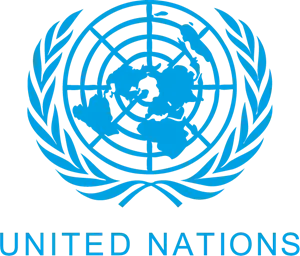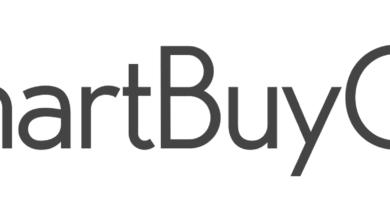Consultance : Analyse des Résultats d’Évaluation des Risques Probabilistes pour les Projets de Reconstruction au Costa Rica
UNDRR – Bureau des Nations Unies pour la Réduction des Risques de Catastrophes
Titre du poste : Consultancy for the Analysis of Probabilistic Risk Assessment Results to Inform Reconstruction Projects in Costa Rica
Localisation : Costa Rica
Période attendue : 04.08.25 – 22.12.25
Description du poste
Dans le cadre des projets de reconstruction au Costa Rica, cette consultance vise à fournir des recommandations techniques essentielles pour renforcer la prise de décision. Cela inclut la systématisation et la visualisation des analyses de risque national et l’amélioration des outils applicables au développement d’infrastructures résilientes. Les livrables doivent informer directement la conception, la planification et l’évaluation des investissements en développement, tout en respectant les engagements du Costa Rica envers le Cadre de Sendai.
Contexte
Créé en décembre 1999, l’UNDRR est l’organisme de référence des Nations Unies pour la coordination des efforts visant à réduire les catastrophes. En tant que point focal, l’UNDRR soutient les pays en développant des mécanismes pour intégrer la résilience et la réduction des risques liés aux catastrophes dans les politiques publiques. Grâce à son réseau de partenaires incluant la société civile, le secteur privé et les gouvernements nationaux, l’UNDRR s’assure que la lutte contre les risques de catastrophes soit une priorité globale.
Responsabilités
Le consultant aura pour mission de :
- Analyser : Les résultats multi-risques disponibles du Global Risk Assessment Framework (GRAF) pour le Costa Rica, concernant la perte annuelle moyenne au niveau provincial, cantonal et sectoriel.
- Identifier : Les actifs du PROERI dans les bases de données d’exposition et de risque de GRAF et estimer leur perte annuelle moyenne.
- Développer : Des produits techniques pour guider la prise de décision en matière d’investissements résilients, comprenant des rapports d’analyse sur le risque de catastrophe et des recommandations pour prioriser les actifs d’infrastructure.
- Participer : À des espaces de coordination technique avec les parties prenantes du PROERI pour valider les résultats et s’assurer de la pertinence institutionnelle des outils développés.
Qualifications Requises
Le candidat idéal devra posséder :
- Formations : Un diplôme en ingénierie civile, architecture, urbanisme, économie, résilience des infrastructures, sciences environnementales, gestion des risques de catastrophe ou domaines connexes.
- Expérience : Un minimum de cinq ans dans le domaine du modélisation de risques probabilistes, de l’analyse de données ou de la gestion des risques.
- Langues : Maîtrise de l’espagnol requise, avec des compétences en anglais et en français souhaitables.
Informations Supplémentaires
Les candidatures féminines sont fortement encouragées, et l’UNDRR valorise la diversité de son personnel. Il est à noter qu’aucun frais n’est exigé à n’importe quel stade du processus de recrutement.
Date de publication : Mercredi, 23 Juillet 2025
—
Cette présentation met en avant les enjeux clés et les attentes associés à ce poste, reflétant les valeurs de transparence et d’inclusion d’Artia13. Elle valorise également l’importance de la diversité au sein des équipes, en encourageant une plus grande représentation au sein des candidatures.
📅 Date de publication de l’offre : Wed, 23 Jul 2025 22:43:46 GMT
🏢 Entreprise : United Nations
📍 Lieu : Ciudad de Panamá
💼 Intitulé du poste : Consultancy for the Analysis of Probabilistic Risk Assessment Results to Inform Reconstruction Projects in Costa Rica
💶 Rémunération proposée :
📝 Description du poste : To provide key technical inputs that strengthen decision-making in reconstruction processes in Costa Rica, through the systematization and visualization of national disaster risk analysis and the enhancement of tools applicable to resilient infrastructure development. The consultancy should generate outputs that directly inform the design, planning, and evaluation of development investments, aligned with Costa Rica’s commitments under the Sendai Framework.Work LocationCosta RicaExpected duration04.08.25 – 22.12.25Duties and ResponsibilitiesBackground Created in December 1999, the United Nations Office for Disaster Risk Reduction (UNDRR) is the designated focal point in the United Nations system for the coordination of efforts to reduce disasters and to ensure synergies among the disaster reduction activities of the United Nations and regional organizations and activities in both developed and less developed countries. Led by the United Nations Special Representative of the Secretary-General for Disaster Risk Reduction (SRSG), UNDRR has over 140 staff located in its headquarters in Geneva, Switzerland, and in regional offices. Specifically, UNDRR guides, monitors, analyses, and reports on progress in the implementation of the Sendai Framework for Disaster Risk Reduction 2015-2030, supports regional and national implementation of the Framework and catalyzes action, and increases global awareness to reduce disaster risk by working with the U.N. Member States and a broad range of partners and stakeholders, including civil society, the private sector, parliamentarians, and the science and technology community. Duties and Responsibilities Since its establishment in 1999, UNDRR has promoted and supported the strengthening of resilient infrastructure, particularly critical infrastructure, through global advocacy and the promotion of risk-informed investments. This commitment was solidified with the adoption of the Sendai Framework for Disaster Risk Reduction 2015-2030 (Sendai Framework), particularly Target D, which focuses on substantially reducing disaster-related damage to critical infrastructure. Following the 2017 Global Platform Declaration, UNDRR intensified its focus on this topic. This momentum was further reinforced by the launch of the Coalition for Disaster Resilient Infrastructure (CDRI) during the UN Secretary-General’s 2019 Climate Action Summit, where UNDRR served as a founding member and remains a key partner. This consultancy will support the implementation of a resilience-based approach to infrastructure in Costa Rica, building on the results of probabilistic assessments of direct losses caused by earthquakes and floods, specifically within the framework of the Emergency Program for the Comprehensive and Resilient Reconstruction of Infrastructure (PROERI). PROERI includes the implementation of 502 infrastructure projects, benefiting approximately 3.8 million people. It comprises 299 projects classified as being at imminent risk and 203 in emergency conditions, all of which will be executed directly by the National Commission for Risk Prevention and Emergency Response (CNE, by its Spanish acronym). The program not only aims to restore the functionality of affected infrastructure but also to increase resilience to future adverse climate events. This consultancy seeks to broaden that perspective by also integrating geological hazard analysis as part of a comprehensive risk approach. Thanks to its extensive experience working with national and international partners, UNDRR is uniquely positioned to maximize impact by promoting greater alignment between governance and resilient development. Its people-centered approach supports the institutional integration of resilience measures across policy and planning frameworks. Role of UNDRR UNDRR will contribute its technical expertise to align the resilient infrastructure criteria under PROERI with the Sendai Framework, ensuring coherence with Costa Rica’s national commitments on disaster risk reduction. The consultant will be based in Costa Rica and will report to the Economic Affair Officer of the United Nations Office for Disaster Risk Reduction (UNDRR) Regional Office for the Americas and the Caribbean (ROAC). Duties and Responsibilities a) Analyze the available multi-hazard risk results from the Global Risk Assessment Framework (GRAF) for Costa Rica in terms of Annual Average Loss (AAL), at the provincial, cantonal, and sectoral levels. (Linked to Deliverables 1, 2, and 3) b) Identify PROERI assets within GRAF Costa Rica’s exposure and risk databases and estimate their AAL. (Linked to Deliverables 2 and 3) c) Develop technical products to inform resilient investment decision-making, including: • Analytical reports on disaster risk • A report with recommendations for prioritizing infrastructure assets identified in GRAF that present the highest levels of risk • Geospatial visualizations to illustrate the geographic distribution of disaster risk (Linked to Deliverables 2, 3, and 4) d) Identify and analyze the methodologies and tools currently applied in Costa Rica for disaster risk assessment and investment decision-making in infrastructure. (Linked to Deliverables 1 and 3) e) Participate in technical coordination spaces with PROERI stakeholders and relevant entities to validate findings, prioritization criteria, and ensure institutional relevance of the tools and recommendations developed. (Linked to Deliverables 1, 2, 3, and 6) f) Design and develop a probabilistic cost-benefit analysis tool for resilient investments in critical infrastructure, based on existing risk metrics from GRAF (AAL, loss exceedance curves, probable maximum losses), and adapted to the Costa Rican context. This should include a user guide and a technical analysis of its applicability, limitations, and recommendations for future improvement. (Linked to Deliverable 5) g) Develop communication materials that translate the technical results of the consultancy into accessible formats for decision-makers and other strategic audiences. (Linked to all deliverables) h) Present the results of this consultancy in technical and institutional forums to teams involved in PROERI and other critical actors-such as the United Nations Office for Project Services (UNOPS), the UN Resident Coordinator’s Office in Costa Rica, and the National Commission for Risk Prevention and Emergency Response (CNE)- (Linked to all deliverables)Qualifications/special skillsA bachelor’s degree in civil engineering, architecture, urban planning, economics, infrastructure resilience, environmental sciences, disaster risk management, or related fields is required. A minimum of five (5) years of experience in probabilistic risk modeling, hazard modelling, data analysis, Disaster Risk Management, Structural Engineering, Structural modeling, risk calculation or related fields is required. Experience in research is desirable.LanguagesEnglish and French are the working languages of the United Nations Secretariat. Fluency in Spanish is required for this consultancy.Additional InformationDue to the high volume of applications received, only successful candidates will be contacted. *FEMALE CANDIDATES ARE STRONGLY ENCOURAGED TO APPLY*. UNDRR values diversity among its staff. We welcome applications from qualified women, men, and people with disabilities.No FeeTHE UNITED NATIONS DOES NOT CHARGE A FEE AT ANY STAGE OF THE RECRUITMENT PROCESS (APPLICATION, INTERVIEW MEETING, PROCESSING, OR TRAINING). THE UNITED NATIONS DOES NOT CONCERN ITSELF WITH INFORMATION ON APPLICANTS’ BANK ACCOUNTS.
🔎 Offre d’emploi vérifiée et enrichie selon la ligne éditoriale de l’Association Artia13 : éthique, inclusion, transparence et vigilance contre les annonces trompeuses.
🌍 Retrouvez d’autres offres sur artia13.world





